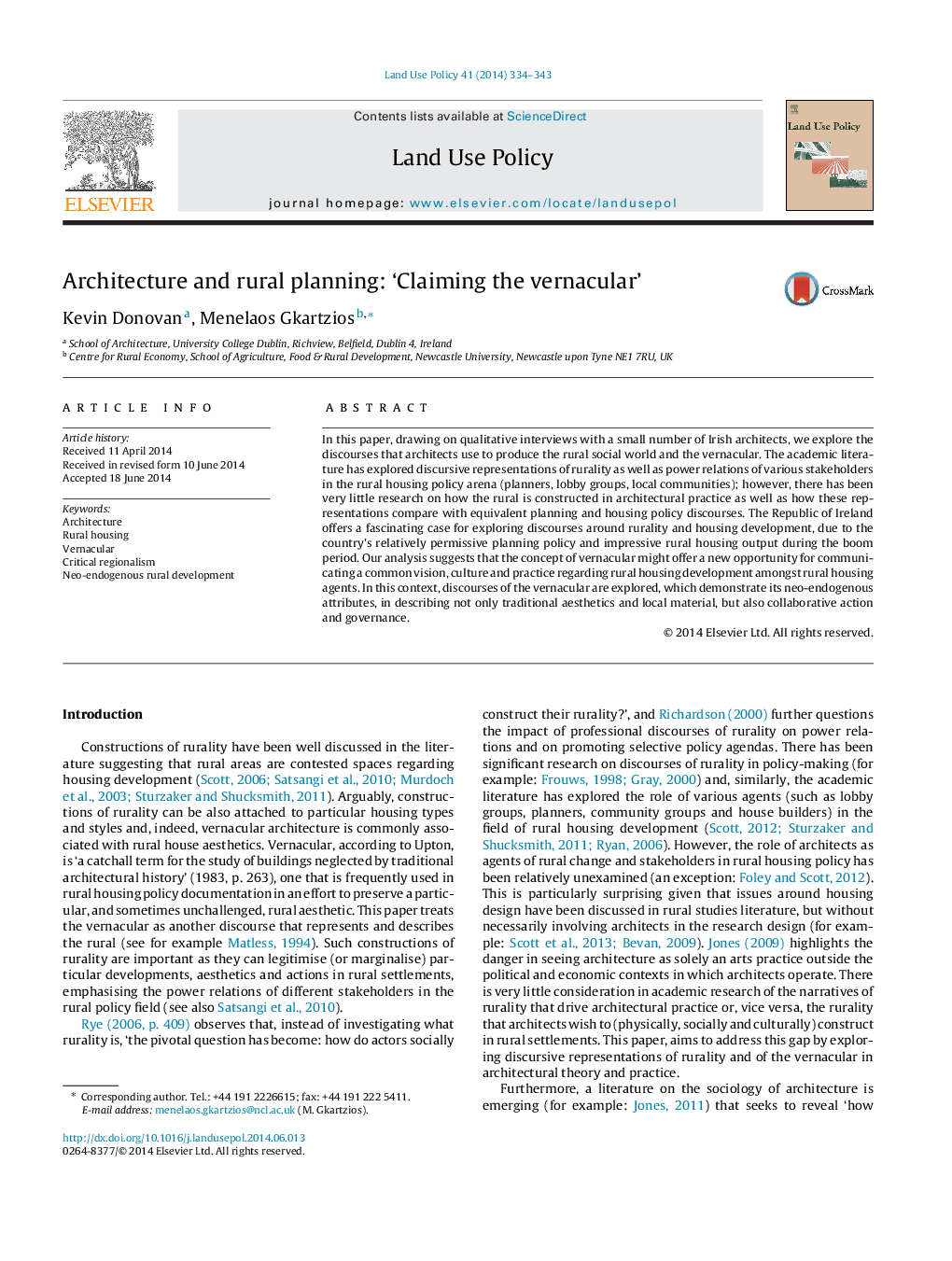| Article ID | Journal | Published Year | Pages | File Type |
|---|---|---|---|---|
| 6548547 | Land Use Policy | 2014 | 10 Pages |
Abstract
In this paper, drawing on qualitative interviews with a small number of Irish architects, we explore the discourses that architects use to produce the rural social world and the vernacular. The academic literature has explored discursive representations of rurality as well as power relations of various stakeholders in the rural housing policy arena (planners, lobby groups, local communities); however, there has been very little research on how the rural is constructed in architectural practice as well as how these representations compare with equivalent planning and housing policy discourses. The Republic of Ireland offers a fascinating case for exploring discourses around rurality and housing development, due to the country's relatively permissive planning policy and impressive rural housing output during the boom period. Our analysis suggests that the concept of vernacular might offer a new opportunity for communicating a common vision, culture and practice regarding rural housing development amongst rural housing agents. In this context, discourses of the vernacular are explored, which demonstrate its neo-endogenous attributes, in describing not only traditional aesthetics and local material, but also collaborative action and governance.
Keywords
Related Topics
Life Sciences
Agricultural and Biological Sciences
Forestry
Authors
Kevin Donovan, Menelaos Gkartzios,
